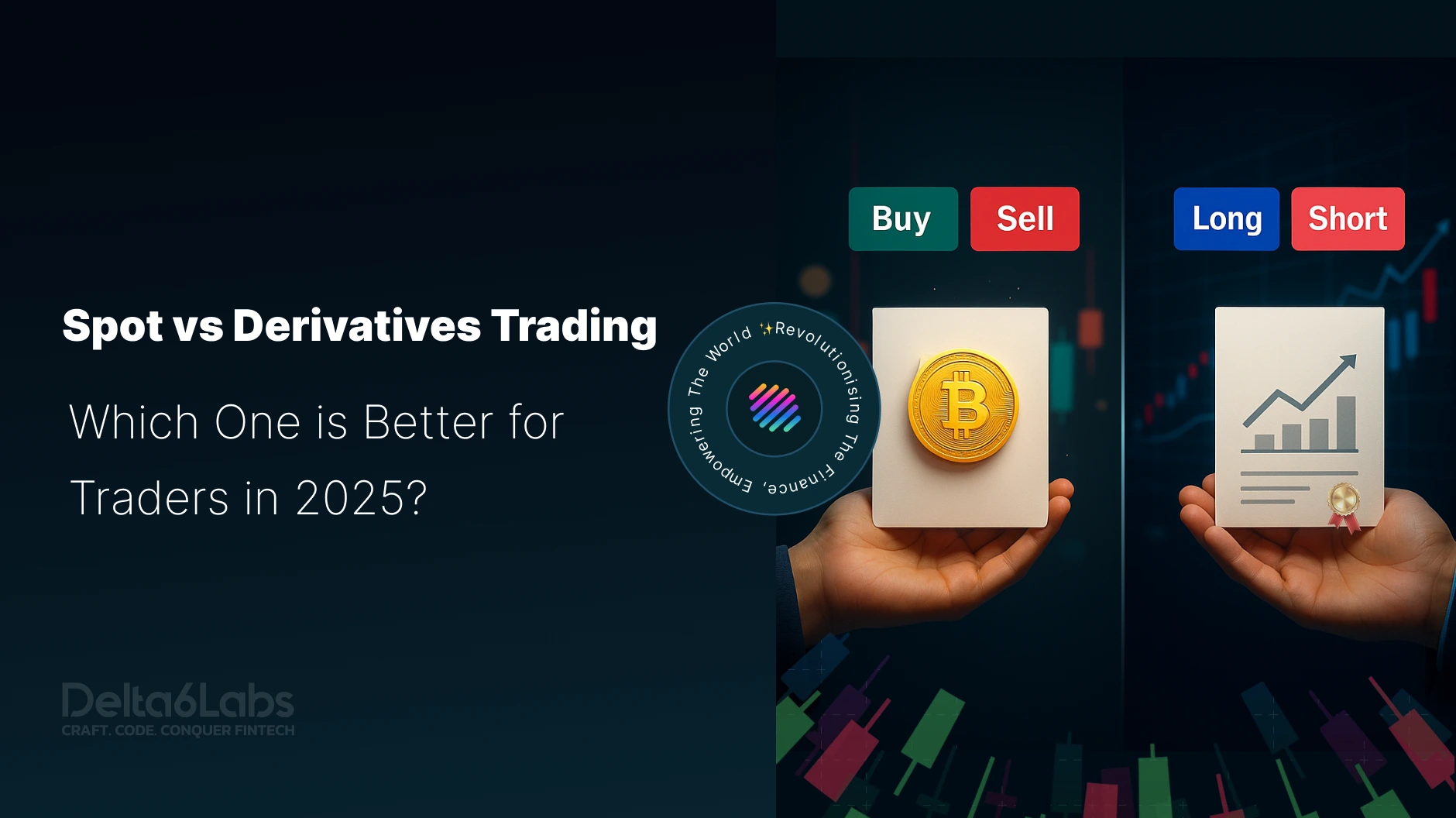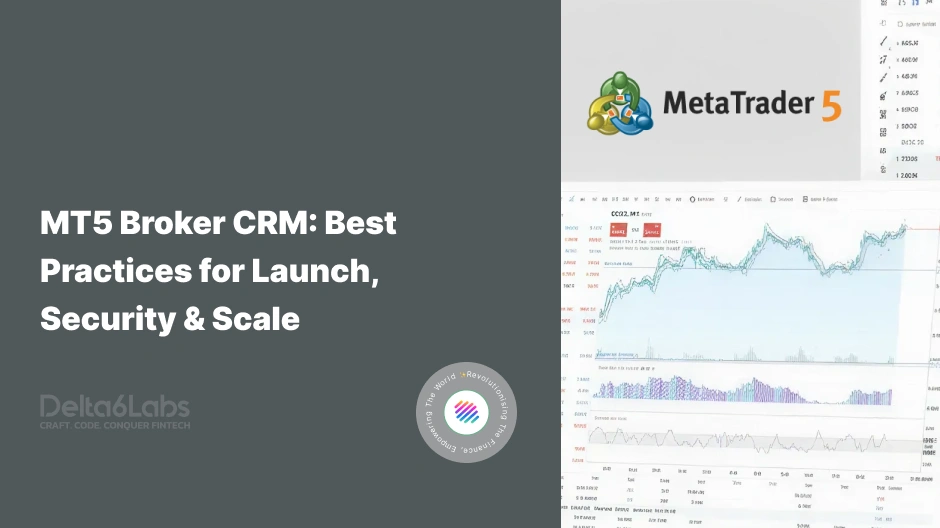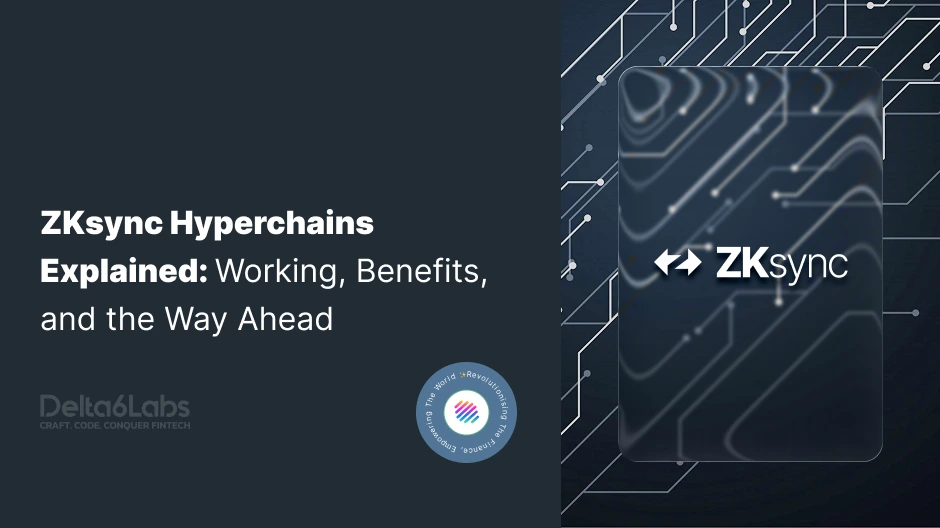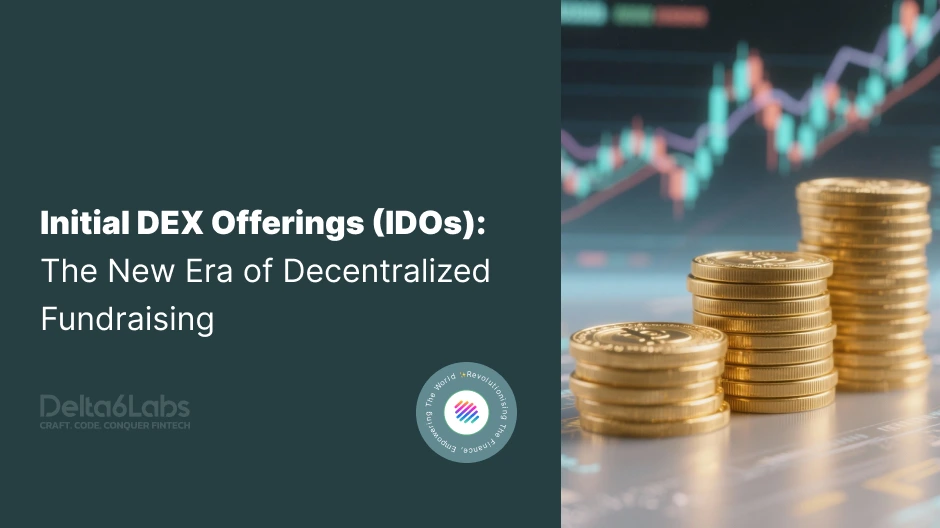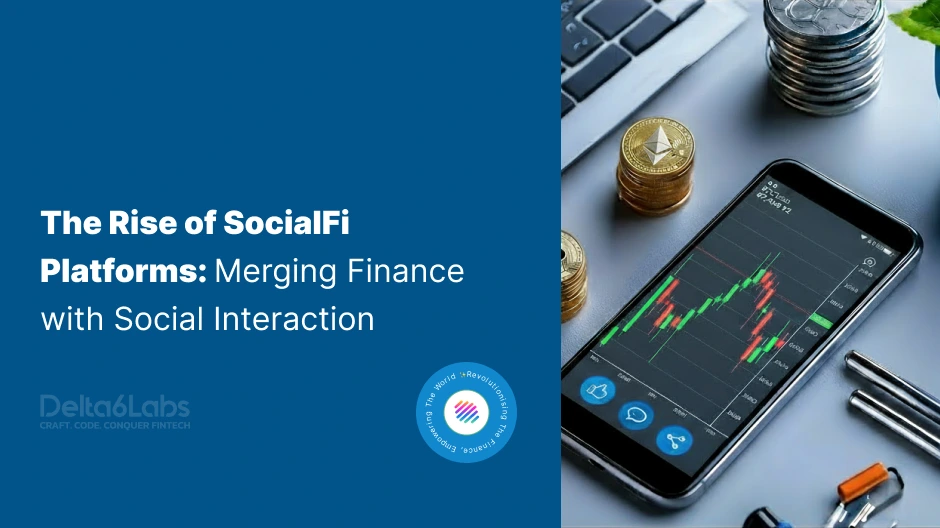Spot vs Derivatives Trading: Which One is Better For Traders in 2025?
Table of Contents
Entrepreneurs and business owners often face confusion when deciding which trading feature to incorporate while building their crypto exchange. Which one among spot and derivatives trading can bring more users and maximize the platform’s revenue? In this blog, we will discuss everything about spot and derivatives trading, their advantages, and limitations. We will also draw a comparison between the two.
What is Spot Trading?
Spot Trading is one of the easiest and most simplified forms of crypto trading. It is best for novice traders. Spot trading simply means selling or buying cryptocurrencies at market prices. It works on the concept of revenue generation by buying digital assets at market price and selling them at a higher price. The Spot trading feature is a must-have in all CEX or DEX platforms.
Benefits of Spot Trading
Here are some benefits of spot trading:
Immediate Ownership
One of the primary benefits of spot trading is that it allows traders to own the crypto assets immediately after the trade is executed. The ownership provided to traders in spot trading is ‘actual ownership’, which is unlikely in derivatives trading. Traders have complete control over the assets traded in spot trading and can withdraw them into their private cryptocurrency wallets.
Lower Risks
The risks associated with spot trading are significantly less because it does not involve leverage. The losses are limited to the initial investments, as price fluctuations are not involved.
Flexibility
Spot trading offers traders flexibility by allowing them to buy or sell any quantity of any cryptocurrency. Investors with different capital can invest as per their capacity, and there is no expiry date or contract size.
No Expiry
All trades in spot trading are settled instantly and do not have expiration dates. In futures contracts and other types of leverage trading, the traders are required to sign contracts with roll-over costs. In spot trading, traders do not have to pay the roll-over price, which allows them to save on overall expenditure.
Diverse Portfolio
Spot trading allows users to diversify their portfolios by investing in various financial markets, including Forex, equities, commodities, and crypto assets.
What is Derivatives Trading?
Derivatives trading is a more advanced form of trading in which users buy or sell underlying assets at some point in the future. The derivatives market works on the speculations made by investors and traders based on market trends and other analytical information. One of the most critical features of derivatives trading is the contract that has been signed by two parties.
Benefits of Derivatives Trading
Speculation
Derivatives trading enables traders to speculate on price movements and earn profits from both upward and downward price movements. The futures and options feature allows traders to amplify their gains by predicting the price of any cryptocurrency.
Lower Fees
The fees in derivatives trading are much lower than those in spot trading. It allows users to execute multiple trades without worrying about the platform fees. However, every crypto exchange has a different fee structure, but in most cases, the trading cost is lower. It also attracts users with low capital to trade multiple times.
Hedging
It serves as a crucial tool in cryptocurrency trading for risk management. Traders can hedge their existing positions to protect their assets from the potential risks associated with high price volatility in the crypto market.
Liquidity
Cryptocurrency exchanges provide high liquidity in derivatives trading, enabling traders to exit and enter trades at their desired prices immediately.
No Ownership Required
One of the primary benefits of derivatives trading is that it doesn’t require traders to own the cryptocurrencies to trade them. Traders can enter or exit trades without owning crypto assets.
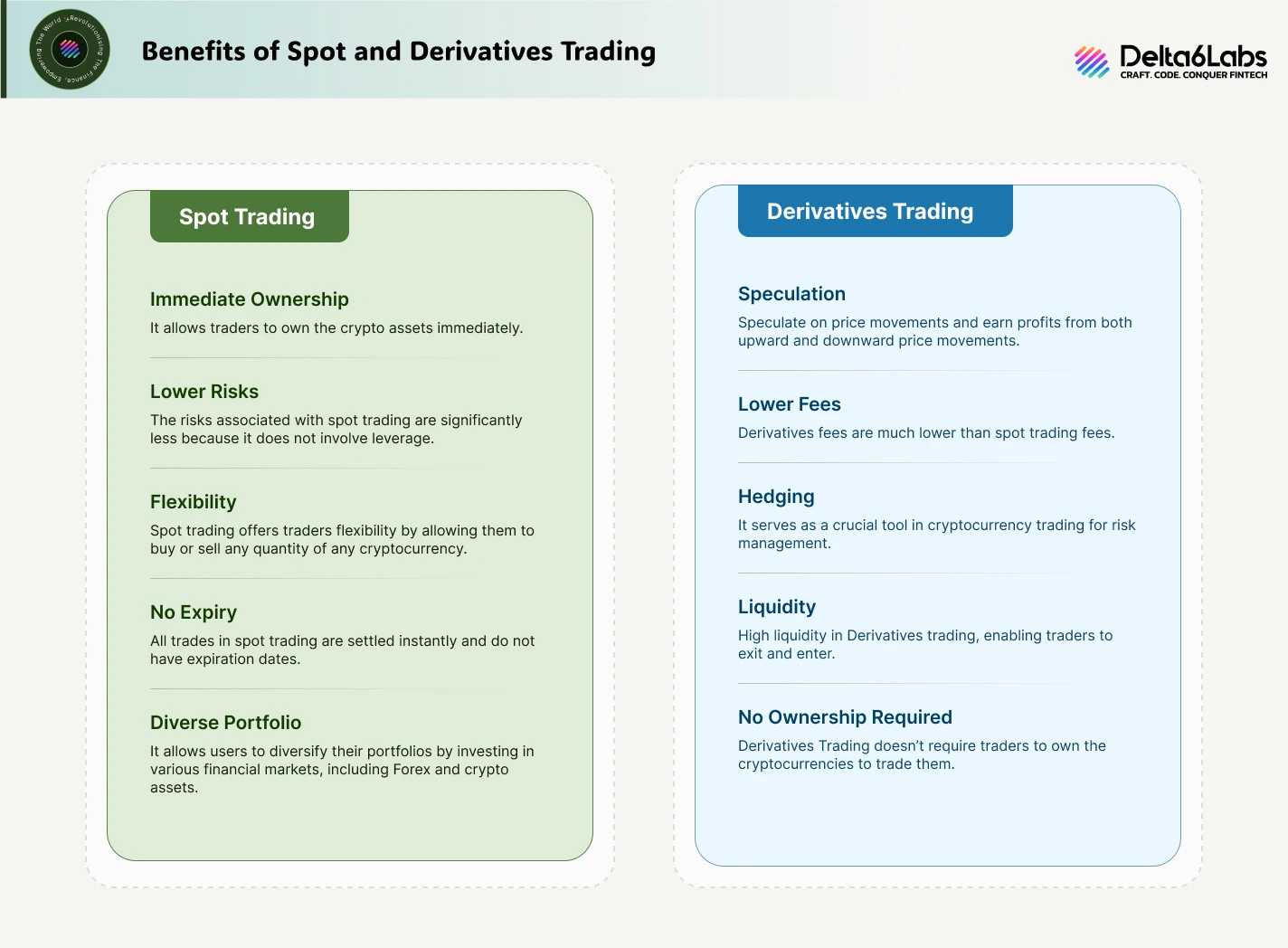
Key Types of Derivatives Trading
Futures Contract
A futures contract is a legally binding document that obligates two parties to an agreement to buy or sell a commodity or an asset at a predetermined price at some point in the future. These are considered significant financial instruments in the trading market.
A futures contract can also be used for hedging and trade speculation. The buyer is obligated to buy or receive the commodity after the expiration of the futures contract. Similarly, the seller of the commodity is obligated to deliver it on the expiration date. Futures contracts are primarily used in financial futures, agricultural futures, currency futures, and energy futures.
Options
Options Trading is a type of derivatives trading in which traders have the right but not the obligation to buy or sell an asset at a predetermined price. However, the seller is under an obligation to fulfil the contract if the buyer chooses to execute the trade. There are two subtypes of options trading, known as call options and put options. In most cases, the options contracts specify whether the option holder has the right to buy (a call option) or the right to sell (a Put option).
Perpetual Futures
This kind of trading is very prominent among seasoned traders. It is also known as perpetual swaps. Perpetual contracts do not have an expiry date, unlike futures contracts, which means that traders can hold their positions indefinitely. This type of trading is beneficial for traders looking to yield profits from long-term market trends. The primary component that distinguishes perpetual trading from traditional trading is the funding rate, which helps keep perpetual futures closer to the spot price of an asset.
Forward Contracts
A forward contract is an agreement between a buyer and a seller to buy or sell cryptocurrency assets at a future date. These contracts can be used for hedging or speculation. A forward contract has an expiry date, so it is necessary to plan a trade with precision before entering a forward contract.
Bottom Lines
Both spot trading and derivatives trading offer unique advantages and are suitable for different types of traders. Spot trading is ideal for novice traders and risk-averse individuals who prefer immediate ownership and lower risks. Its straightforward nature allows for easy market entry and flexible trading without the concern of expiration dates. On the other hand, derivatives trading is more suitable for seasoned traders who want to gain profits on market volatility, leverage their investments, and engage in strategic risk management through hedging. When deciding between the two, entrepreneurs and business owners must consider their customer base and the trading features they wish to offer.
The crypto exchange that traders use plays an integral role in deciding which feature they should choose. User experience is a vital factor that users consider when trading, as it can be difficult for some traders to understand the complexities of derivatives trading. Delta6Labs develops spot and derivatives exchanges with an intuitive user interface and an advanced dashboard to enhance the navigation experience for users and improve their overall trading experience.
Frequently Asked Questions
Disclaimer:
The information on this blog is for knowledge purposes only. The content provided is subject to updates, completion, verification, and amendments, which may result in significant changes.
Nothing in this blog is intended to serve as legal, tax, securities, or investment advice of any investment or a solicitation for any product or service.
